ct gun permit application form

The CT Gun Permit Application Form is a crucial document for residents and non-residents seeking to legally carry firearms in Connecticut, ensuring compliance with state laws.
Overview of the Permit Application Process
The CT Gun Permit Application Process involves several steps, starting with obtaining a local pistol permit from your town’s police department. Applicants must complete a state-approved pistol safety course and gather necessary documents, such as a CT driver’s license or state ID and proof of residency. The application includes a notarized form, a safety training certificate, and a fee. Once submitted, local authorities conduct a background check, and upon approval, the permit is issued. This process ensures compliance with Connecticut’s firearms regulations and public safety standards. Timely submission and proper documentation are essential for a smooth application experience.
Importance of Understanding the Application Requirements
Understanding the CT Gun Permit Application requirements is essential for a successful and timely approval. Familiarizing oneself with eligibility criteria, such as age, residency, and background checks, ensures compliance. Completing the necessary safety training and gathering all required documents, like identification and proof of residency, prevents delays. Misunderstanding the requirements can lead to rejection or additional processing time. Therefore, carefully reviewing the application process and ensuring all steps are followed correctly is crucial for obtaining the permit and exercising legal firearm ownership in Connecticut.
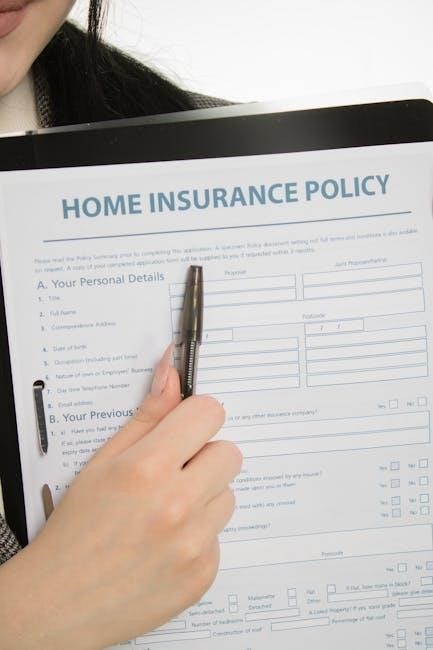
Eligibility Criteria for a CT Gun Permit
To qualify, applicants must meet specific age, residency, and background requirements. Legal U.S. residency, criminal history checks, and mental health evaluations are mandatory for approval.
Age Requirements for Applying
In Connecticut, applicants for a gun permit must be at least 21 years old to apply for a pistol permit. This age requirement is strictly enforced. Individuals younger than 21 are not eligible, regardless of other qualifications. The age requirement ensures legal adulthood and maturity to handle firearms responsibly. Applicants must provide proof of age, such as a valid government-issued ID or birth certificate. This rule applies to both residents and non-residents. Meeting the age requirement is a fundamental step in the application process.
Residency Requirements in Connecticut
To apply for a CT gun permit, applicants must meet specific residency requirements. They must be a legal resident of Connecticut or a non-resident who works in the state. Residency is verified through documents like a valid Connecticut driver’s license, state ID, or utility bills. Non-residents must provide proof of employment in Connecticut. The residency requirement ensures that local authorities can conduct proper background checks and maintain public safety. Meeting these criteria is essential for a successful application. Proper documentation of residency status is strictly enforced.
Background Check and Disqualification Factors
A thorough background check is required for a CT gun permit, evaluating criminal history, mental health, and other factors. Disqualification occurs for felony convictions, outstanding warrants, or recent misdemeanors. Mental health issues, such as involuntary commitments, may also disqualify applicants. Additionally, domestic violence restraining orders or prior substance abuse can lead to denial. The state ensures public safety by scrutinizing these factors, making the background check a critical step in the application process. Applicants must disclose all relevant information to avoid rejection or legal consequences.

Application Process for a CT Gun Permit
The CT gun permit application involves obtaining forms, completing them accurately, attaching required documents, and submitting to local authorities for review and processing.
Step-by-Step Guide to Filling Out the Application Form
Begin by carefully reading the instructions provided with the CT gun permit application form. Fill in all required personal details, including name, address, and date of birth, using black ink. Provide accurate residency and citizenship information, and answer all legal and background questions truthfully. Attach the required supporting documents, such as proof of identity and residency. Ensure all sections are completed legibly, and sign the form in the designated area. Review the application for accuracy before submission to avoid delays.
Obtaining the Necessary Forms and Documents
To apply for a CT gun permit, you must first obtain the correct application forms. These can be downloaded from the Connecticut State Police website or picked up in person at your local police department or town clerk’s office. Ensure you have all required documents, such as a valid government-issued photo ID, proof of residency, and a birth certificate. Additional documentation, like a completed pistol safety course certificate, may also be needed. Verify the list of required documents with local authorities to avoid delays in processing.
Required Identification and Supporting Documents
To complete the CT gun permit application, you must provide specific identification and documents. A valid government-issued photo ID, such as a driver’s license or state ID, is mandatory. Proof of U.S. citizenship or residency, like a birth certificate or passport, is also required. Additionally, you may need to submit a social security card or proof of residency, such as utility bills or a lease agreement. A notarized application and a completed pistol safety course certificate may also be necessary. Ensure all documents are up to date and legible to avoid delays;
Submission of the Application to Local Authorities
Once the application is complete, it must be submitted to your local police department or town clerk’s office. Ensure all sections are filled out accurately and the application is notarized. Attach all required documents, including identification, proof of residency, and safety course certificates. A non-refundable fee is typically required at this stage. Submitting the application in person is recommended to confirm receipt. Incomplete applications may result in delays or rejection, so double-check all details before submission. Follow up with local authorities if you do not receive confirmation within a few days.
Processing Time and Follow-Up Procedures
The processing time for a CT gun permit typically ranges from 8 to 12 weeks, depending on the volume of applications and complexity of background checks. After submitting your application, it is essential to wait at least 12 weeks before contacting local authorities for a status update. Follow up by phone or in person to inquire about delays. Keep a record of your application and any communication. If denied, you will receive written notification outlining the reasons and potential next steps. Timely follow-up ensures your application remains on track for review.
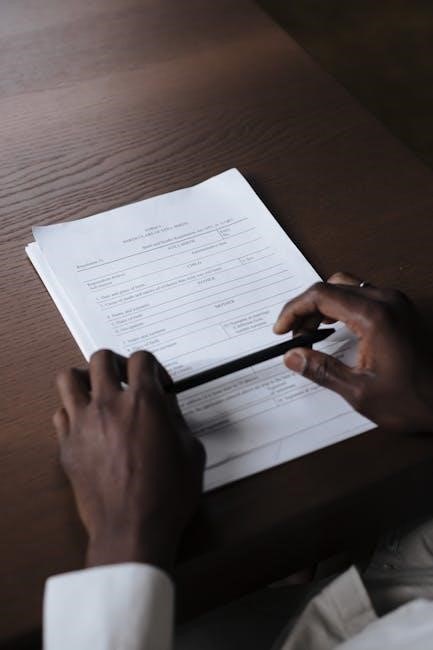
Safety Training and Certification
Safety training is mandatory for CT gun permits. Complete a state-approved pistol safety course or NRA certification. This ensures responsible firearm handling and meets legal requirements effectively.
Approved Pistol Safety Courses in Connecticut
Connecticut requires completion of an approved pistol safety course before applying for a gun permit. These courses, conducted by certified instructors, cover firearm safety, handling, and legal responsibilities. Topics include proper gun storage, use of deadly force laws, and safe shooting practices. Courses are typically 8 hours long and include both classroom and range training. Upon completion, applicants receive a safety training certificate, which must be submitted with the permit application. These courses ensure applicants understand and can demonstrate responsible firearm ownership and usage.
Completion of an NRA or State-Approved Course
Applicants for a CT gun permit must complete an NRA-certified or state-approved firearm safety course. These courses provide comprehensive training on firearm safety, laws, and responsible ownership. Topics include gun handling, storage, and legal use of deadly force. Courses may also cover shooting techniques and safety protocols. Successful completion is verified by a certificate, which is mandatory for the permit application. While NRA courses are widely recognized, state-approved alternatives are also accepted, ensuring applicants meet Connecticut’s rigorous safety and knowledge standards before carrying a firearm.
Importance of the Safety Training Certificate
The safety training certificate is a mandatory requirement for the CT gun permit application, ensuring applicants demonstrate firearm proficiency and legal knowledge. It verifies completion of an approved course, proving the applicant understands safe handling, storage, and use of firearms. This certificate is critical for public safety, as it ensures permit holders are responsible and informed. Without it, the application cannot be processed, making it a cornerstone of Connecticut’s permitting process to promote responsible gun ownership and reduce risks associated with firearm possession.

Role of Local and State Authorities
Local and state authorities collaborate to ensure compliance with CT gun permit regulations, verifying applications, conducting background checks, and maintaining firearm records for public safety and accountability.
Local Police Department’s Role in the Permit Process
The local police department plays a crucial role in the CT gun permit process by accepting and reviewing applications, conducting background checks, and ensuring applicants meet all eligibility criteria. They verify residency, collect required documents, and forward completed applications to state authorities for further processing. The police department also issues temporary permits under certain conditions and maintains records of permit holders. Their oversight ensures compliance with state laws and public safety standards, making them a key intermediary between applicants and the final permitting decision.
State of Connecticut Special Licensing and Firearms Unit
The State of Connecticut Special Licensing and Firearms Unit is responsible for overseeing the issuance of gun permits at the state level. After the local police department processes and forwards the application, this unit reviews it to ensure compliance with state laws. They conduct thorough background checks, verify eligibility, and make the final decision on permit approval. The unit also handles permit renewals, address changes, and resolves any issues related to permit validity. Their role is critical in maintaining statewide consistency and enforcing firearm regulations to ensure public safety and legal compliance.
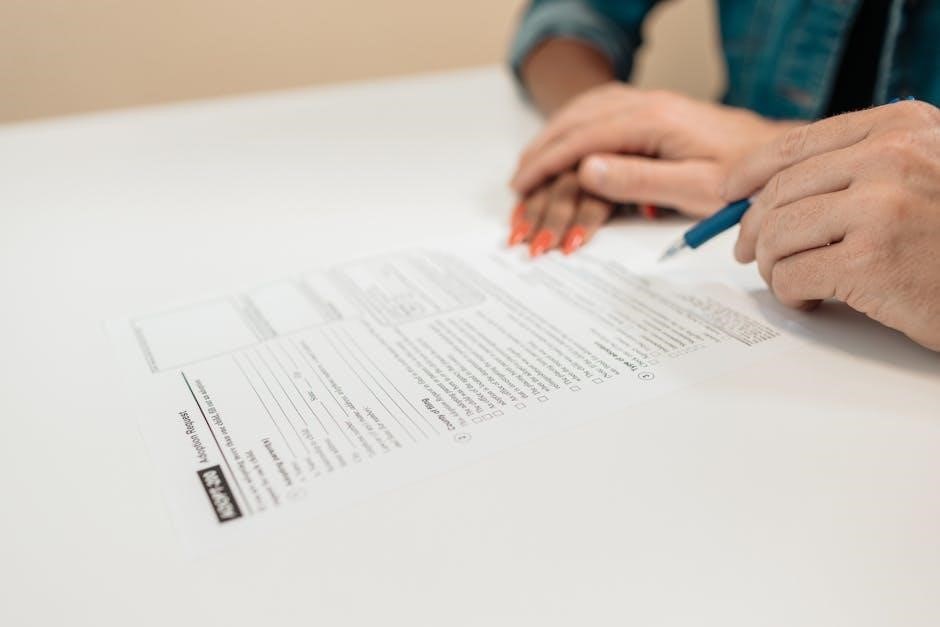
Fees and Validity of the Permit
The CT gun permit application includes a fee for processing, with costs varying by jurisdiction. The permit is typically valid for 5 years before renewal is required.
Cost of Obtaining a Pistol Permit
Obtaining a pistol permit in Connecticut involves several fees that vary by jurisdiction. The state application fee is typically around $70, while local fees may add another $50-$100. Additional costs include fingerprinting, which can range from $50 to $100, depending on the service provider. Some towns may also charge extra for processing or administrative tasks. These fees cover background checks, application processing, and permit issuance. It’s important to note that fees are non-refundable, even if the application is denied. Applicants should verify exact costs with their local authority.
Duration of Permit Validity
A Connecticut pistol permit is valid for a period of five years from the date of issuance. After this term, the permit expires and must be renewed to maintain legal carrying privileges. Renewal requires submitting a new application, paying the required fee, and meeting the eligibility criteria again. The validity period ensures that authorities can periodically reassess an individual’s suitability to carry a firearm. It’s crucial to renew on time to avoid legal consequences for carrying without a valid permit.

Renewal of the CT Gun Permit
The renewal process requires submitting a new application, ensuring continued eligibility, and paying the required fee. It allows authorities to periodically reassess an individual’s suitability.
Renewal Process and Required Documents
The renewal process for a CT gun permit involves submitting a completed application form, which can be obtained from local authorities or downloaded online. Applicants must provide proof of identity, residency, and a valid safety training certificate. A background check will be conducted, and any disqualifying factors, such as felony convictions or restraining orders, will be reviewed. The renewal application must be notarized and accompanied by the required fee. Processing times vary, but applicants are encouraged to submit renewals well in advance of the permit’s expiration date to avoid lapses in validity.
Timeline for Permit Renewal
The renewal application for a CT gun permit can be submitted up to 90 days before the current permit’s expiration date. Processing typically takes 60 to 90 days, though this may vary depending on workload. Applicants are advised to submit renewals promptly to ensure continuity of their permit. The permit remains valid during the processing period if the renewal is filed on time. Note that renewal applications cannot be expedited, so plan accordingly. Always verify timelines with local authorities, as processing times may differ by jurisdiction.
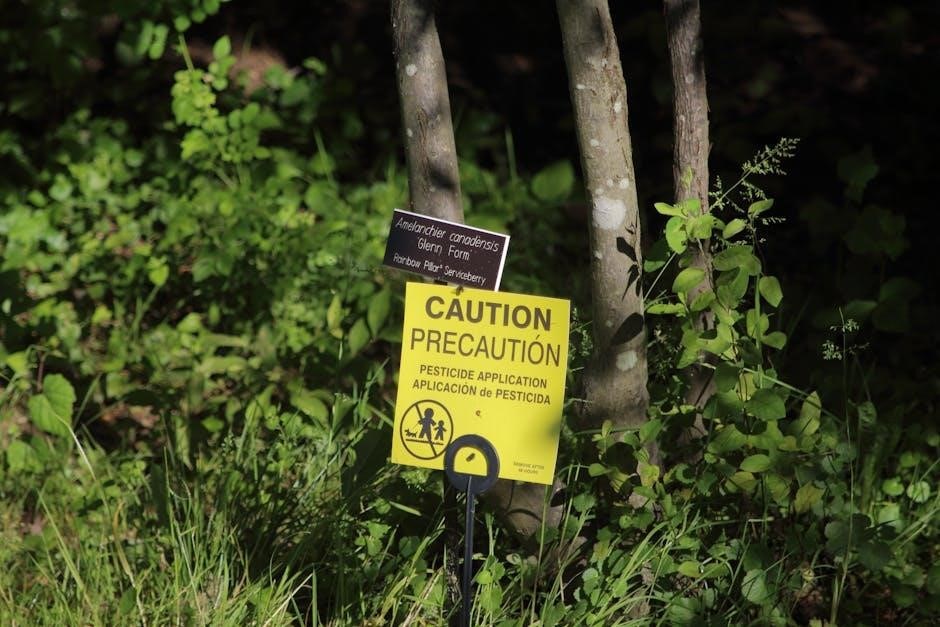
Special Considerations and Restrictions
Connecticut imposes strict restrictions on firearm use, including banned locations and concealed carry regulations. Applicants must adhere to state laws and ensure compliance with all safety protocols.
Concealed Carry Laws in Connecticut
In Connecticut, concealed carry is regulated strictly. A permit is required to carry a firearm concealed. The state follows a “may issue” policy, granting permits at local authorities’ discretion. Even with a permit, certain locations prohibit concealed carry, such as schools, government buildings, and private properties with specific signage. Applicants must complete safety training and meet all eligibility criteria. Reciprocity with other states is limited, and out-of-state permits may not be recognized. Always verify the latest state laws and regulations before carrying a firearm.
Reciprocity with Other States
Connecticut has specific reciprocity agreements with certain states, allowing permit holders to carry firearms across state lines. Currently, the state recognizes permits from select jurisdictions, primarily those with similar or stricter requirements. However, this list can change, so it’s essential to verify Connecticut’s reciprocity agreements before carrying in another state. Additionally, not all states recognize Connecticut permits, so residents should check the laws of any state they plan to visit. Always ensure compliance with both home and destination state regulations to avoid legal issues.
Restrictions on Firearm Use and Carrying
In Connecticut, even with a valid permit, there are strict restrictions on where and how firearms can be carried. Firearms are prohibited in schools, government buildings, and certain public spaces. Private property owners also have the right to restrict carry, often indicated by posted signs. Additionally, state law prohibits carrying firearms while under the influence of alcohol or drugs. The permit does not authorize carry in state parks or during certain public events. Violating these restrictions can result in legal consequences, including permit revocation. It is crucial to understand and adhere to these limitations to ensure compliance with state law.
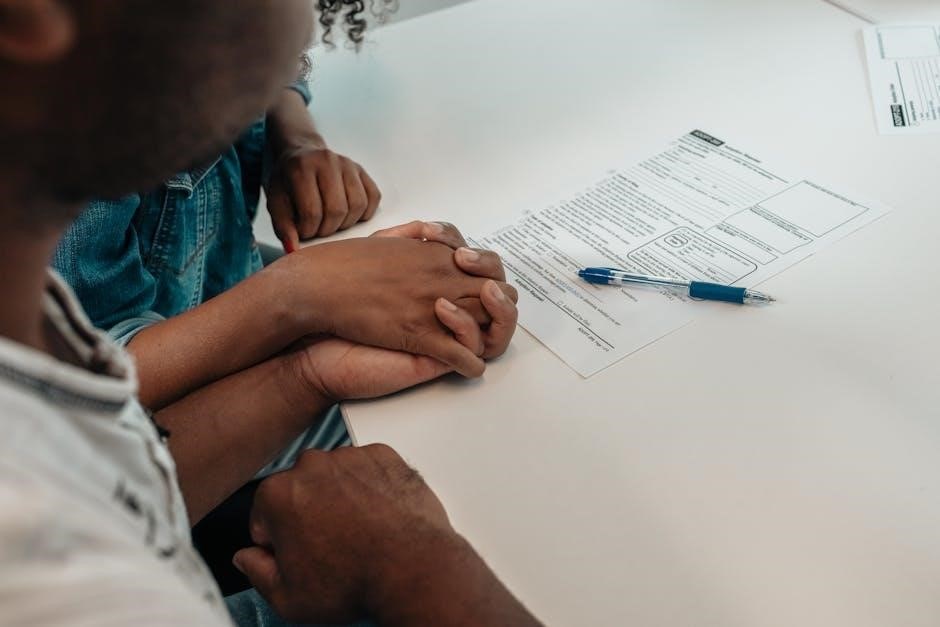
Required Supporting Documents
The CT gun permit application requires a birth certificate, proof of residency, CT driver’s license or state ID, safety training certificate, and a notarized application form.
Birth Certificate or Proof of U.S. Residency
For the CT gun permit application, a birth certificate is required to prove U.S. citizenship or residency. It must be a certified copy, not a photocopy, to ensure authenticity and, importantly, prevent fraudulent applications. Additionally, applicants must provide proof of Connecticut residency, which can include a utility bill dated within the last 90 days, a signed lease agreement, or a valid CT driver’s license. All documents must be current and valid to be accepted. These requirements help verify the applicant’s identity and eligibility for the permit, ensuring compliance with state regulations.
CT Driver’s License or State ID
A valid Connecticut driver’s license or state ID is required to verify residency and identity. The document must be current and not expired, as it serves as primary proof of residency within the state. Applicants must ensure the address on the ID matches the address provided on the application form. This document is essential for confirming eligibility and aiding in the background check process. It ensures the applicant meets Connecticut’s residency requirements and helps prevent fraudulent applications by verifying identity and residency status.
Notarized Application and Certification
The CT gun permit application must be notarized to ensure authenticity and legality. Applicants must sign the form in the presence of a licensed notary public, who verifies the applicant’s identity and witnesses the signature. This step prevents fraud and ensures the application is executed properly. A valid government-issued ID, such as a driver’s license, is typically required for verification. The notarized application confirms the applicant’s acknowledgment of the information provided and compliance with state regulations, making it a critical step in the permitting process.

Frequently Asked Questions (FAQs)
Common questions include eligibility criteria, required documents, and processing times. Applicants often inquire about renewal processes and disqualification factors. Clear guidance helps ensure smooth application submission.
Common Questions About the Permit Process
Applicants often ask about eligibility requirements, necessary documents, and processing timelines. Questions also arise regarding safety training, disqualification factors, and renewal procedures. Many inquire about the role of local authorities and state units in issuing permits. Understanding the difference between concealed carry and open carry laws is another common query. Additionally, applicants seek clarification on reciprocity with other states and restrictions on firearm use. These questions highlight the importance of thoroughly understanding the regulations before submitting the application.
Addressing Concerns and Clarifying Doubts
Many applicants express concerns about the complexity of the process or fear of rejection. Clarifying doubts early ensures a smoother experience. Common worries include misunderstanding residency requirements or the necessity of safety training. Others may fear background check disqualifications or delays in processing. Addressing these concerns involves reviewing eligibility criteria and ensuring all documents are correctly prepared. Reaching out to local authorities or legal experts can alleviate fears and provide guidance, helping applicants navigate the process confidently and avoid unnecessary setbacks.
Applying for a CT gun permit requires careful preparation and adherence to regulations. Understanding the process ensures a smooth experience and responsible firearm ownership.
Final Thoughts on Applying for a CT Gun Permit
Applying for a CT gun permit involves a detailed process requiring attention to eligibility, documentation, and legal requirements. Thorough preparation ensures compliance with state laws and regulations. Completing safety training demonstrates responsibility and understanding of firearm use. Applicants must remain patient during the processing period and maintain open communication with local authorities. Adhering to all guidelines ensures a smooth application experience. Remember, firearm ownership carries significant responsibilities, and staying informed about laws and updates is essential for lawful possession and use in Connecticut.
Importance of Adhering to Regulations
Adhering to regulations when applying for a CT gun permit is crucial for ensuring legal compliance and public safety. Following the outlined process guarantees that all requirements are met, reducing the risk of delays or application rejection. Proper documentation and safety training demonstrate responsibility and understanding of firearm use. Compliance also upholds the integrity of the permitting system, ensuring that only qualified individuals obtain permits. By adhering to regulations, applicants contribute to a safer community and maintain their legal rights to carry firearms responsibly and securely.